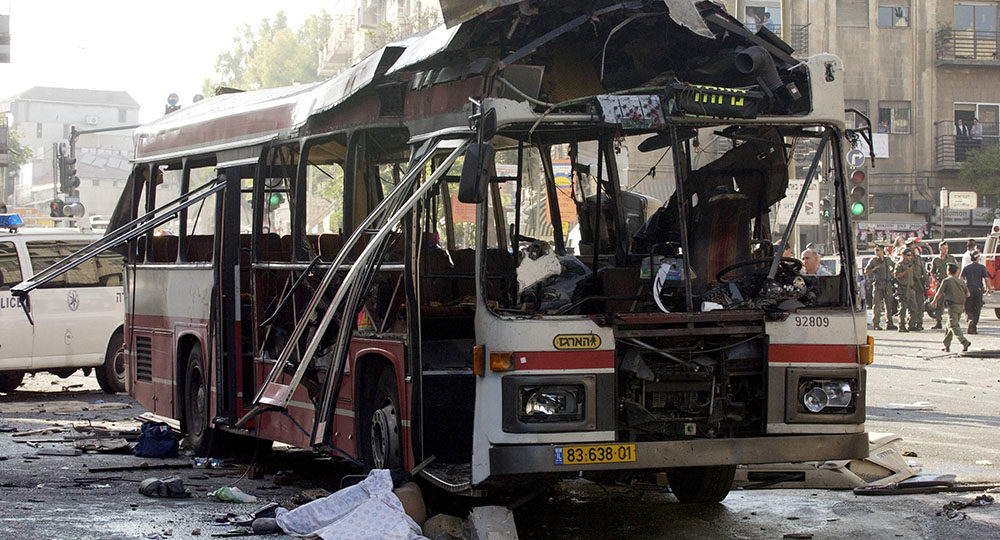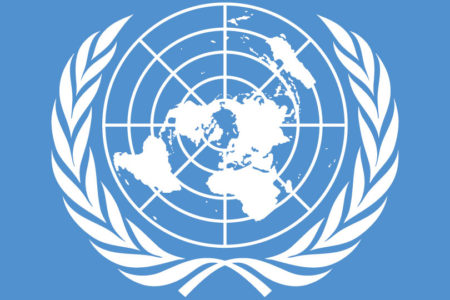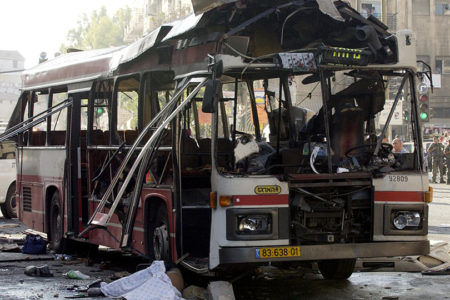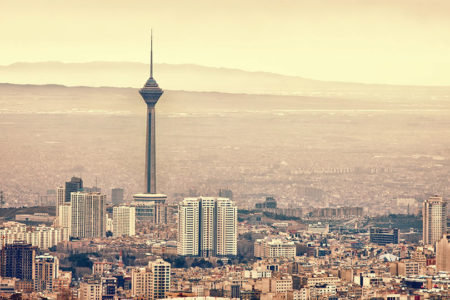Mahmoud Abbas: One More Victim of Terror
Tom Rose filed this story with us many months ago. Everything he wrote has come to pass, which bodes ill for any future negotiations as long as Yasser Arafat remains on the scene.
The only parties who seemed the least bit surprised that the “road map” to peace got detoured in a new wave of Palestinian terrorism and Israeli responses were the plan’s American and European sponsors. While Western diplomats professed shock, neither Israelis nor Palestinians missed a beat.
Traffic on Jerusalem’s Jaffa Road was fully restored less than three hours after sixteen people were killed June 11 by an 18-year-old Palestinian suicide murderer. In his premission video, the young killer said he was acting at the behest of Hamas leader Abdul Aziz Rantisi, the lucky survivor of an unsuccessful Israeli Air Force missile strike the day before.
Some restaurants into which body parts of victims had been blown even made a determined effort to reopen quickly to serve customers equally determined to patronize them.
None of the most influential supporters of the Road Map, the latest blueprint for Middle East peace, bothered to notice that virtually no one who actually lives here, be he Israeli or Palestinian, hawk or dove, believes the scheme has more than a remote chance of success. On the other hand, if half a century of failure to solve the Israeli-Palestinian conflict didn’t dissuade the Road Map’s advocates from giving the same old approach yet another college try, why should a bunch of local skeptics?
Like so many plans before it, the Road Map demands that Israel take concrete risks for peace while asking Palestinians merely to restate unfulfilled promises. But unlike earlier peace initiatives, the Road Map doesn’t bother asking the Arab states to renounce the war to destroy Israel that they started on the day of Israel’s birth in 1948 and have never ended.
And so U.S. Secretary of State Colin Powell reacted to the June 11 massacre not by calling for reevaluation or even a pause, but rather by seeking still more Israeli concessions: “We must not let this latest terrorist outrage derail the path to peace,” he said in Washington, D.C.
What really threatens to derail the process, however, is Washington’s failure to understand the predicament of its favored Palestinian leader—the new prime minister, Mahmoud Abbas. He is the figure now called upon to insure implementation of Palestinian commitments under the Road Map. To put it bluntly, if Abbas fails, the Road Map fails.
Yet how can Abbas succeed? He is a powerless figurehead, threatened by Hamas leaders who openly call for his murder, while Yasser Arafat works both publicly and behind the scenes to undermine him. Arafat calls Abbas a “traitor to the Palestinian cause.” The hard truth is that, had Israel succeeded in eliminating Hamas mastermind Rantisi, it would have done far more to help Mahmoud Abbas than George Bush has done.
That’s what made President Bush’s condemnation of Israel’s failed attempt to kill the Hamas leader so worrying. More important, Hamas is as much a threat to Abbas as it is to Israel. Failure to recognize that fact undermines the very peace plan the president has so publicly embraced. Unless the United States backs real change in the Palestinian regime, Mahmoud Abbas stands exposed to his people as powerless.
Last year, on June 24, 2002, President Bush shocked the diplomatic world by calling for the Palestinians to “choose” a new leadership “not compromised by terror.” Implicitly, he was calling on them to replace Yasser Arafat.
By the time the Road Map was finally released earlier this year, Bush’s demand for Palestinian “regime change” had been watered down to the appointment of a Palestinian prime minister without the removal of Arafat. Abbas took office in May, but he has floundered ever since. In the period leading up to June’s mayhem, Abbas had command of not a single Palestinian police officer and, therefore, neither arrested a single terrorist nor confiscated a single illegal weapon.
In a concession to Israel, the Americans insisted that Prime Minister Abbas and not Arafat be the Palestinian official responsible for implementing the Road Map. Yet to succeed, Abbas needs much more than pronouncements of support. He needs power, and at present what little he has is rapidly slipping through his fingers.
To crack down on terror, Abbas needs control of the Palestinian Interior Ministry, yet that ministry remains firmly in Arafat’s hands. To stop the incitement to violence, Abbas needs control of the communications and education ministries, which are likewise controlled by Arafat. Far from helping his former deputy, Arafat is now orchestrating a blood-curdling incitement campaign against him in the Palestinian media. But most important, Abbas needs the destruction of terrorist organizations like Hamas, Islamic Jihad, and Arafat’s own Al Aksa Martyrs Brigade.







